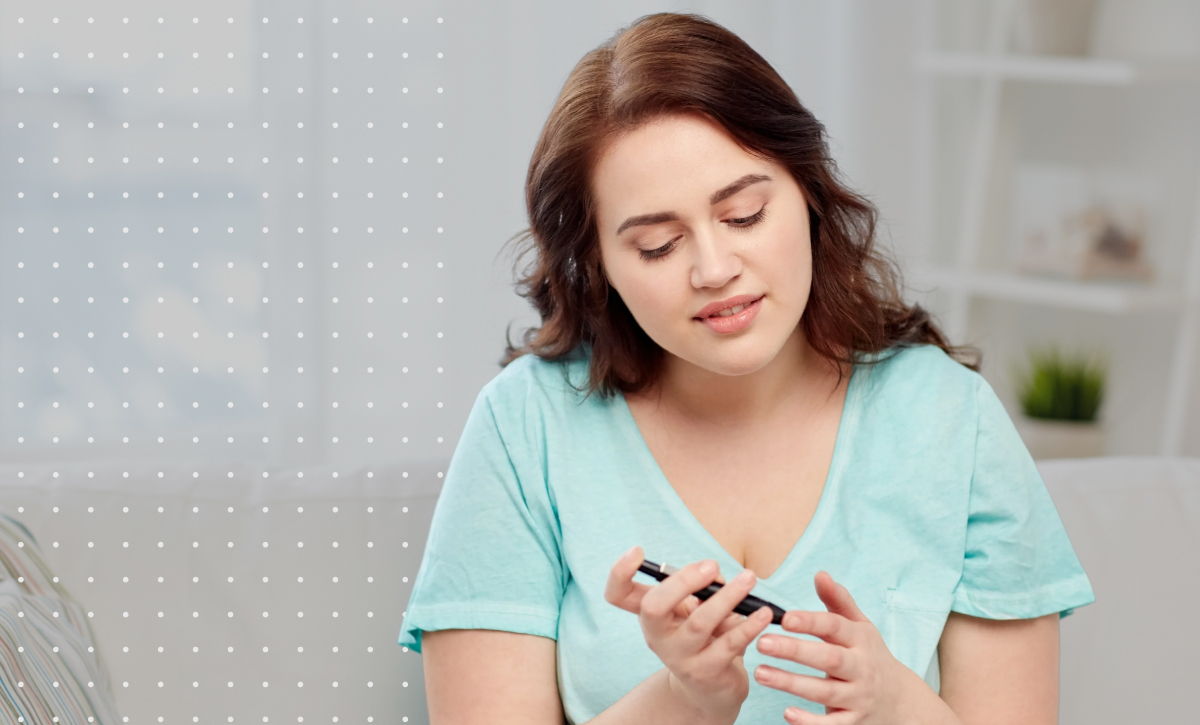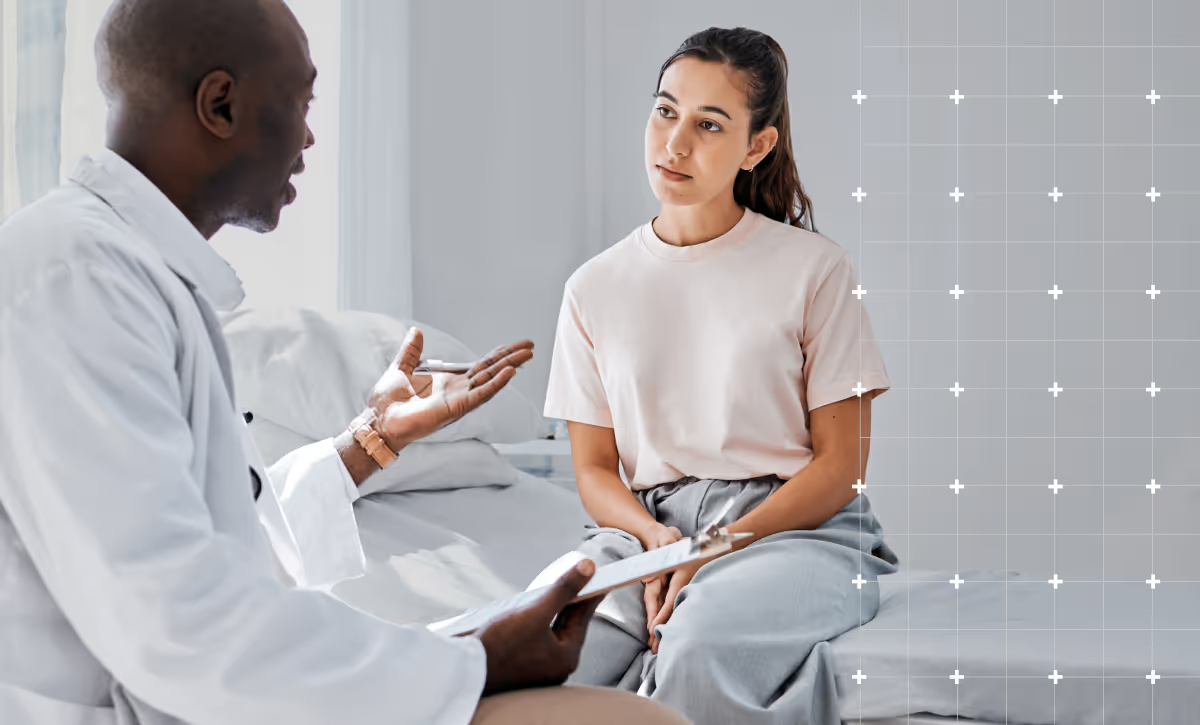Whether you’re trying to get pregnant, considering parenthood, or just curious about your reproductive health, fertility testing can provide useful information. Although you can see a doctor for fertility testing, there are also at-home testing options available.
While the majority of infertility evaluations require in-person exams and testing, hormone testing and semen analysis can be done from home. However, the accuracy of these tests varies. Choose a test that is supported by published studies, and confirm that the provider tests samples in a lab with high clinical standards. At-home fertility testing options through Carrot have all been vetted for quality.
Different at-home fertility tests will come with different testing panels and instructions, but here’s an overview of what you can expect. Check with individual testing providers for specifics.
Are at-home fertility tests accurate?
There are a range of at-home testing options available that can measure a variety of fertility factors, including specific hormones, semen quality, and more. The accuracy of these tests can depend on a person’s health history, when the tests are completed, and where the samples are analyzed. When selecting your at-home test, research the different options and choose a test that is approved by the FDA, supported by scientific studies, and meets high clinical standards. Different at-home fertility tests may measure different biomarkers and come with different panels, so it’s important to determine what you’re most interested in gaining insight into.
How to test your fertility at home
Most at-home fertility tests can be purchased online. If you’re a Carrot member, you can also choose from a vetted selection of at-home options in your Carrot account. But no matter where you purchase your at-home test or what test you chose, most tests follow a similar process — you’ll first collect a small sample of blood, urine, or semen, send it to a lab for testing, and get the results. You’ll then have the opportunity to consult with a healthcare provider about your results — whether that’s your own healthcare provider or an expert provided through your at-home test. Many chose these at-home tests for the convenience, ease, and flexibility of learning more about their health without ever leaving their home
Fertility testing preparation
Hormone testing
"Certain hormones can be masked by birth control pills," says Laurel Stadtmauer, MD, PhD, a reproductive endocrinologist (fertility specialist) at Carrot partner The IVF Center. So it's recommended to not take contraception for one to two months and waiting until a certain day (e.g., cycle day three) of your menstrual cycle before testing.
Semen analysis
To prepare for a semen analysis, an individual should refrain from ejaculating for a certain period of time (e.g., two to five days) before testing.
What to expect during fertility testing
Hormone testing
At-home fertility tests typically measure ovarian reserve hormones such as anti-mullerian hormone (AMH) or follicle-stimulating hormone (FSH). Tests usually include all necessary shipping materials for returning your sample(s).
AMH is released by the cells that line follicles, so AMH levels are directly correlated to the number of follicles found in the ovaries. These levels decline with age. Low levels of AMH indicate a lower number of follicles and a lower ovarian reserve.
FSH is responsible for stimulating the growth of ovarian follicles and mature eggs during ovulation. Unusually high levels of FSH can be a sign of poor ovarian reserve. Low levels can indicate a problem with the pituitary gland or hypothalamus — two regions of the brain that play important roles in ovulation. It’s important to check FSH along with E2, because high levels of E2 can suppress FSH and muddle test results.
Semen analysis
These fertility tests typically evaluate semen parameters such as semen volume, sperm concentration, motility (how well the sperm move), and morphology (size, shape, and appearance). Some at-home sperm test providers will also look at genetic health and offer to freeze and store samples. Testers provide their sample in a collection cup or vial and use the included shipping materials to return it to the provider.
Follow the instructions included with the test carefully to ensure the most accurate results.
What to expect after fertility testing
Once the results are back, some companies will connect you with a medical professional, such as a physician, to help interpret them. In other cases, the results may be accompanied by easy-to-read explanations of the findings. Still, you may want to talk to your doctor about your results.
Are any “abnormal” results from at-home fertility tests cause for concern? “Most physicians will repeat the test to validate the results,” explains fertility specialist at Carrot Partner Innovative Fertility Joshua Berger, MD, PhD. “One bad value doesn't necessarily mean that something is off. You want to try to make sure that everything is validated before you start interventions.”
At-home fertility testing through Carrot
Carrot offers a range of options to help members learn more about their fertility:
Female Fertility test and Wellness Test
These tests go beyond measuring basic fertility hormones to offer a more comprehensive picture of fertility, health, and wellness. The fertility test reproductive hormones like AMH, while the wellness test measures hormones and biomarkers related to overall health like blood sugar levels (A1c) and thyroid-stimulating hormone (TSH). Both tests are completed through small, finger-prick small blood. For Carrot members, learn more about this test.
At-home semen analysis and cryopreservation services
This test looks at five key semen health factors: semen volume, sperm count and concentration, sperm motility, and sperm morphology. Samples can also be analyzed for genetic health and/or frozen for future use. For Carrot members, learn more about this test.
Testing with a doctor
Carrot’s network of 3,800+ clinics can help connect you with a specialist for an in-person fertility evaluation. If you're a Carrot member, sign in to your Carrot account to find a provider near you.
At Carrot, we want to make fertility care accessible and affordable to everyone. We have a number of resources to support you, from at-home fertility testing to help finding the right provider.
Have additional questions? Our team is available to answer any fertility questions you might have.













